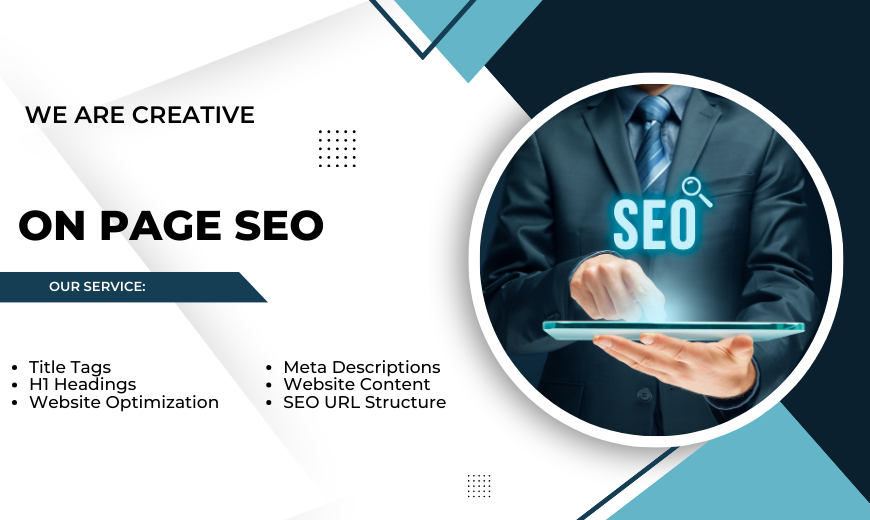On Page SEO
On-Page SEO is a cornerstone of effective Search Engine Optimization strategy, focusing on optimizing individual web pages to rank higher and earn more relevant traffic in search engines. Unlike off-page SEO, which deals with external signals like backlinks, on page SEO involves aspects of your website that you can control and improve directly.
Key Components of On-Page SEO
- Title Tags and Meta Descriptions: Crafting informative and keyword-rich title tags and meta descriptions that accurately reflect the content of each page helps search engines understand your page’s topic and entices users to click through from SERPs.
- Headings and Content: Organizing content with proper heading tags (H1, H2, etc.) not only improves readability but also emphasizes important information and keywords. Quality content that addresses user intent and includes targeted keywords is fundamental.
- URL Structure: Clean, descriptive URLs that include keywords can improve click-through rates and search engine rankings. Keeping URLs short and relevant to the page content is best practice.
- Alt Text for Images: Descriptive alt text for images helps search engines understand the context of visuals, improving the accessibility and visibility of your content in image searches.
- Internal Linking: Strategically linking to other pages within your website enhances user navigation, distributes page authority across your site, and allows search engines to crawl and index your pages more effectively.
- Mobile Responsiveness: With the increasing prevalence of mobile searches, having a mobile-responsive website is essential for on-page SEO. It ensures a positive user experience across all devices.
- Page Speed: Faster loading times improve user experience and positively impact search engine rankings. Optimizing images, leveraging browser caching, and minimizing code are ways to enhance page speed.
- Keyword Optimization: While keyword stuffing is outdated and penalized, incorporating relevant keywords naturally in your content, titles, and headings is crucial for on-page SEO.
Benefits of On-Page SEO
- Improved SERP Rankings: Well-optimized pages are more likely to rank higher in search results, increasing visibility to potential customers.
- Enhanced User Experience: On-page SEO not only caters to search engine algorithms but also significantly improves the browsing experience for users, potentially increasing dwell time and reducing bounce rates.
- Increased Organic Traffic: By making your site more accessible and visible to search engines, on-page SEO drives more targeted, organic traffic to your website.
Best Practices for On-Page SEO
- Conduct thorough keyword research to understand what your target audience is searching for.
- Regularly update your content to keep it fresh and relevant.
- Use tools and plugins to analyze and improve on-page SEO factors, such as Yoast, ALL in One SEO SEO Plugin for WordPress.
- Monitor your on-page SEO performance using tools like Google Analytics and Google Search Console to make data-driven improvements.
Conclusion: The Essential Role of On-Page SEO
On-Page SEO is an indispensable part of any successful digital marketing strategy, directly impacting your website’s visibility, user engagement, and overall performance in search engines. By focusing on the key components and adhering to best practices, businesses can significantly enhance their online presence, attracting more qualified traffic and ultimately driving growth.

